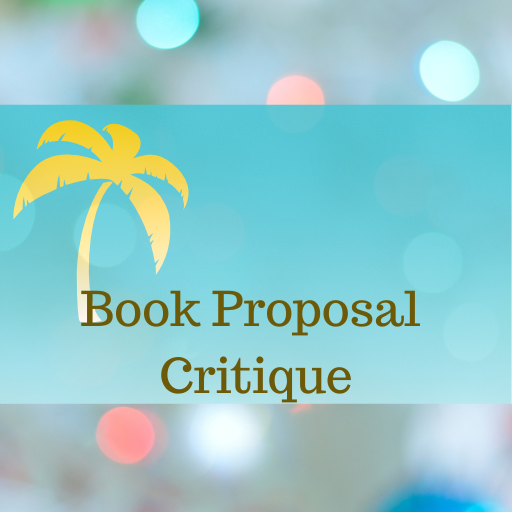Getting an agent after poor sales
Recently a writer wrote asking for help. He’d sold several novels to a small press, and despite winning a number of awards, the books did not sell well. He wanted to know what that meant for his career. Would he be able to get an agent and sell to bigger publishers? Should he hang up his pen?
First, let me say that this is very typical of many talented writers, whether writing fiction or nonfiction. Your work is good but you struggle to make sales. While I think it’s always wise to ask in what ways you might improve your writing and storytelling skills – there’s always more to learn for all of us – I would take the awards as acknowledgment that your work has literary merit.
Being published by any traditional publisher at all is a mark of talent. So all of that is relevant and meaningful.
The challenge of working with small presses
Small presses have very little power in terms of promotion and distribution and are often run as a labor of love by the owners rather than from any profit motive. This is a very different mindset from the bigger publishers, who are concerned with commercial viability.
They don’t publish books merely because an editor loves them. For traditionally published books, distribution is incredibly important. If they can’t get it into bookstores, readers can’t discover it. This is true even in a world dominated by Amazon.
The exception is when the small publisher has a core base of fans of the publishers’ titles, such as with very specialized nonfiction presses.
Fiction is far harder for anyone to sell but especially for small publishers. So I would say that publishing through a small press is a significant reason why your books aren’t selling. (This is also true of self-publishing authors.)
If your goal is just to have your work out in the world, small publishers can help facilitate this and of course self-publishing is a reasonable option. If you want more than that, though, you do need to focus on the steps that will help get you to greater success, such as finding an agent.
Agents absolutely understand that poor sales don’t necessarily reflect the author’s writing ability. It is a sad fact of the writing life that poor sales are par for the course – far more common than excellent sales.
That said, there are some agents who prefer to work with people who’ve never been published because there is always the possibility that the unknown author will be a great success.
If you’ve published before to poor sales, naysayers can say, “Well, look at the track record; we can’t take the risk on publishing him.” In a sense, the unknown is a better bet to them than the known.
But that is not all agents. Most understand that successful writers are made over time, they’re not birthed in a splashy debut. They may recommend a pen name or something like that in order to elide over the less successful books but if they like your work they will discuss possible strategies with you.
The thing is, EVERYONE wants the author who has great sales. But there just aren’t that many around, so agents have to figure out how to work with authors who don’t have great sales. Those agents exist so it is just a matter of finding them. It can be a slog, but if you have a plan in place (more on that below), it doesn’t have to be a completely awful and dispiriting slog.
I would not try to use the query letter as a place to explain the reason for your poor sales. Any attempt to explain in a query letter will come across as too defensive. Let the agent love your work and its potential before you get too far along in solving a sales problem for them. You’ve done good work, you’ve received recognition for your work, you haven’t seen the sales that you would like and it has a lot to do with the publishing company you’re working with. That is something every established agent has seen a thousand times.
Mention the awards, etc. as evidence of your ability but don’t use the precious real estate of your query letter to try to explain anything.
That said, some agents use submission portals that require you to list sales numbers. I would disclose your publishing history but if possible I would leave out the information about sales until the agent has expressed interest in your query, at which time you can have a reasonable conversation about what happened.
If this information is required on the form, then it is likely the agent is not going to be one you can work with, so don’t hold your breath. Submit anyway and see what happens.
One way you can interest an agent after poor sales is to work on promotional efforts that you can undertake (versus what the publisher does). If you have an extensive newsletter list, or a core of passionate fans, or something that shows such an investment in your work would be worthwhile, you’re more likely to be able to attract an agent and a bigger publisher.
Agents and bigger publishers are driven by the profit motive. Agents do not represent and publishers do not publish books that have literary merit merely because those books have literary merit. They publish books they think they can sell to bookstores (and to a lesser degree to readers).
They’re wrong a great deal of the time, but that doesn’t stop them from continuing to focus on creating the most commercial projects they can.
Finding a literary agent
Agents talk about representing books they love but a book an agent loves is one they think they can sell.
When I was an agent, I turned down lovely, lyrical books not because they weren’t beautifully written but because I had no idea what publisher would want them. I took on projects that were objectively worse because I knew I could place them.
So you have to get comfortable with this fact in order to compete successfully in this larger arena. It is very hard for many writers because we have this idea that literary merit ought to matter in the world. And it does! It just isn’t necessarily rewarded with monetary success. This is not meant to discourage but to be realistic.
If there are steps you can take (and I think there are) to make your work more commercially viable and to make yourself as an author more approachable to readers, you are more likely to be able to land that agent and eventually the bigger book deal.
Join the Club!
New to story editing? Begin at the beginning.







